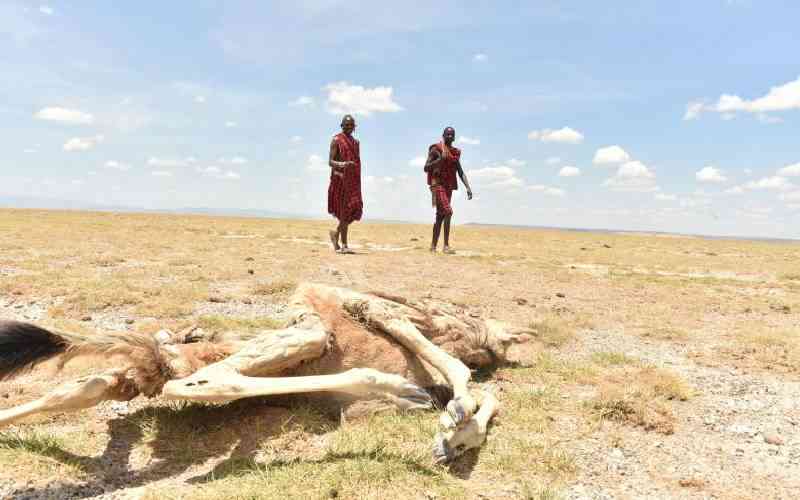×
The Standard e-Paper
Smart Minds Choose Us

Rising sea levels, the melting of polar ice, and extreme weather events such as wildfires, floods, and droughts have become common manifestations of climate-induced disasters.
Scientific reports indicate Earth's atmosphere is experiencing a worrisome increase in carbon dioxide levels, which has triggered a chain reaction.